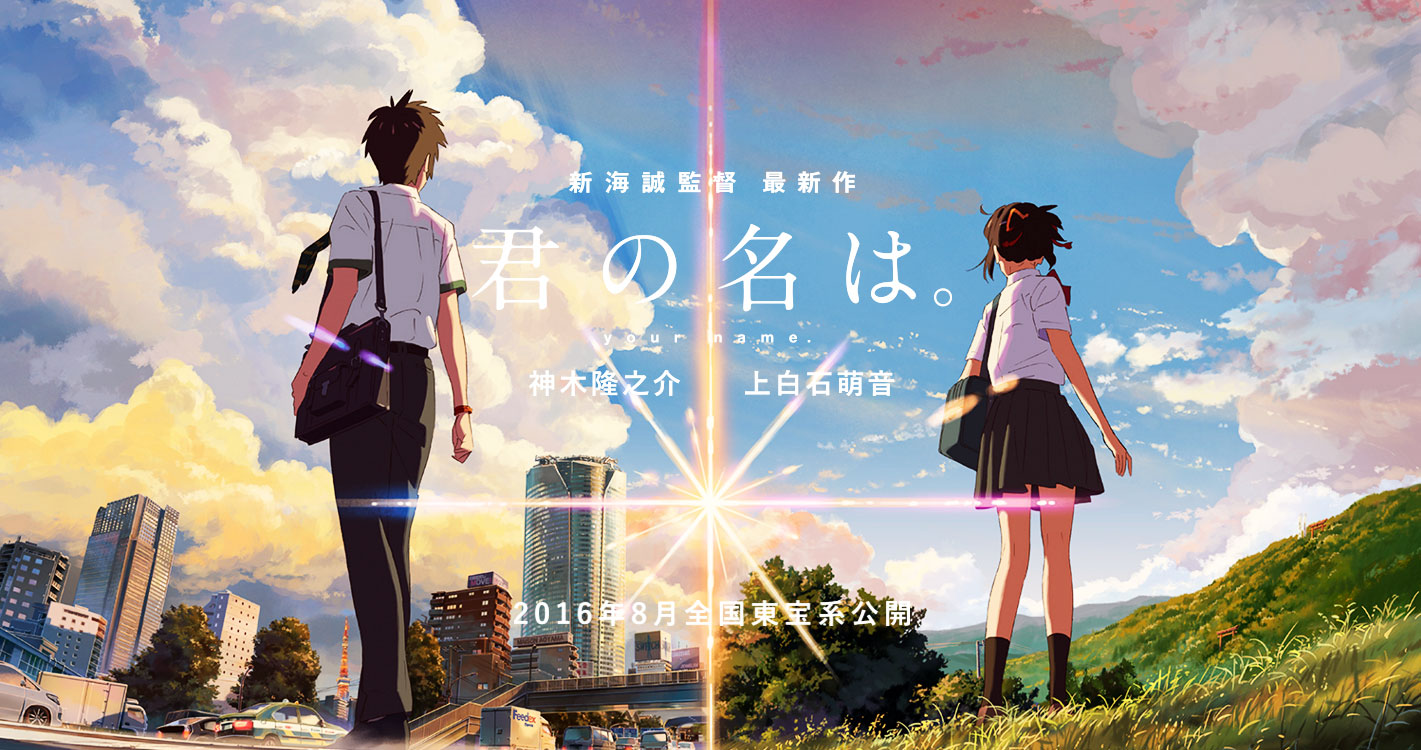A yearning for connection amid the disorienting aspects of our daily lives is a theme explored in the Japanese phenomenon Your Name. This film, the highest-grossing in Japan last year and the all-time highest-grossing anime worldwide (surpassing “Spirited Away”), delves into the relatable pursuit of something, someone, or someplace that anchors us to a perceived sense of normalcy. Despite a somewhat shaky start, the work by writer/director Makoto Shinkai unfolds into a beautiful, enthralling narrative that builds remarkable momentum toward an emotionally charged conclusion. Notably, Your Name stands out as one of the most visually stunning animated films of the year.
Shinkai takes a potentially cheesy “Freaky Friday”-esque concept and infuses it with melancholy and authenticity. The premise is straightforward: Mitsuha (Mone Kamishiraishi) is a high school girl residing in the fictional Itomori, a picturesque village in Japan’s Hida region, while Taki (Ryunosuke Kamiki) is a slightly older boy living in Tokyo. Both are ordinary individuals leading separate lives with no apparent connection, their experiences shaped by the contrasting backdrops of city life and rural charm.
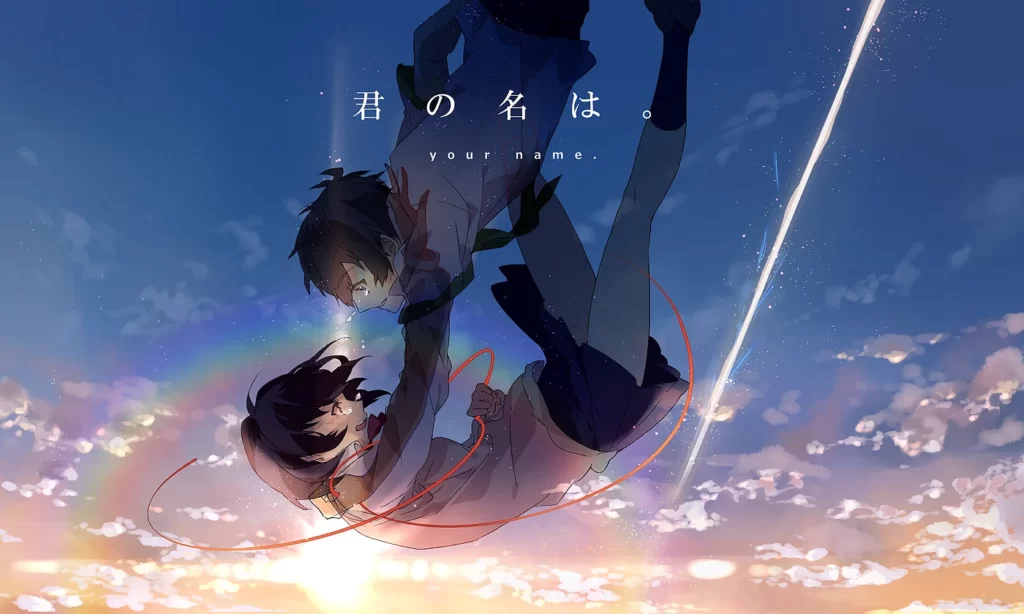
The narrative takes an unexpected turn when Taki wakes up in Mitsuha’s body, leading to a series of alternating switches between the two characters. Rather than resorting to typical comedic scenarios, Shinkai explores their attempts to assist each other, leaving notes and diaries about their experiences during these body-switching episodes. For instance, Mitsuha helps Taki approach the girl he likes, akin to a body-switching Cyrano de Bergerac. However, the story takes an unexpected twist when the characters cease switching, and Taki, left with only vague memories, embarks on a quest to find Mitsuha. This shift elevates Your Name into an unforeseen and profound exploration of themes beyond its initial setup.
Your Name (Kimi no Na wa) stands as a romantic-fantasy anime film directed by Makoto Shinkai, adapted from the novel of the same title. The narrative revolves around the disparate lives of Mitsuha and Taki, existing in vastly different worlds. Mitsuha resides in the serene, culturally rich countryside town of Itomori, while Taki navigates the fast-paced urban life of Tokyo. Mitsuha, discontent with her monotonous existence, yearns to embrace the vibrancy of Tokyo and expresses a wish to be reborn as a charismatic Tokyo boy. Their destinies take an unexpected turn when, through shared dreams, the characters find themselves swapping bodies.
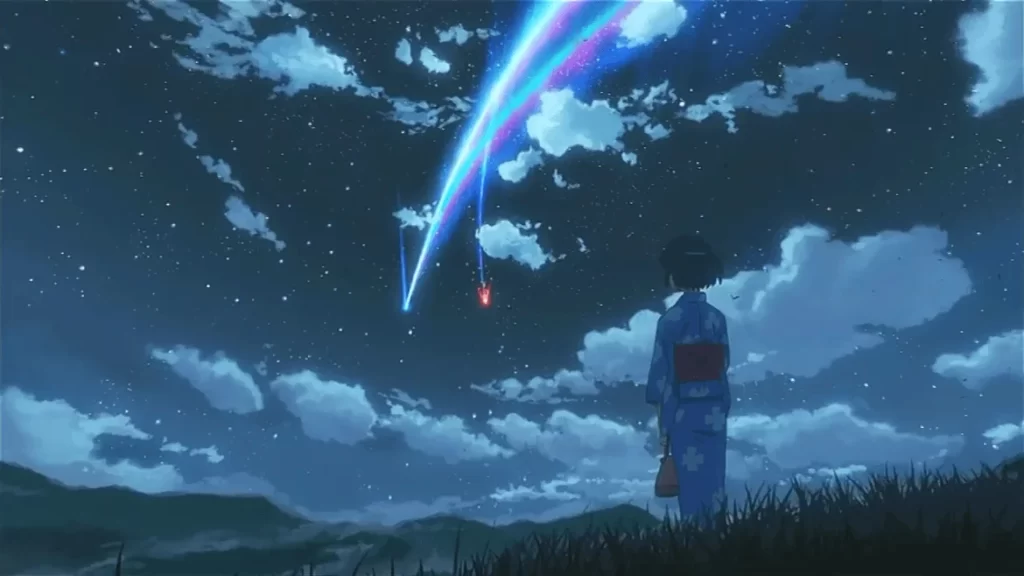
What sets Your Name apart from other anime features is its ability to captivate and engage viewers on multiple emotional levels. The film weaves a narrative tapestry of love, friendship, spirituality, and an intriguing twist, eliciting a range of emotions from its audience. The complexity of the plot unfolds with twists and revelations that had me gripped, alternating between moments of joy, laughter, and even tears as the story progressed and the true essence of the narrative emerged.
Your Name boasts not only a well-crafted narrative but also a cast of uniquely crafted, intriguing, and endearing characters. Mitsuha and Taki, the central figures propelling the storyline, resonate with viewers on a deep level, particularly in their shared experiences of loss and yearning. Their aspirations become the viewers’ own desires, fostering a strong connection and eliciting cheers for their success. Complementing Mitsuha and Taki, a range of supporting characters contribute to the film’s vibrancy, injecting humor and substance into the overarching dramatic narrative.
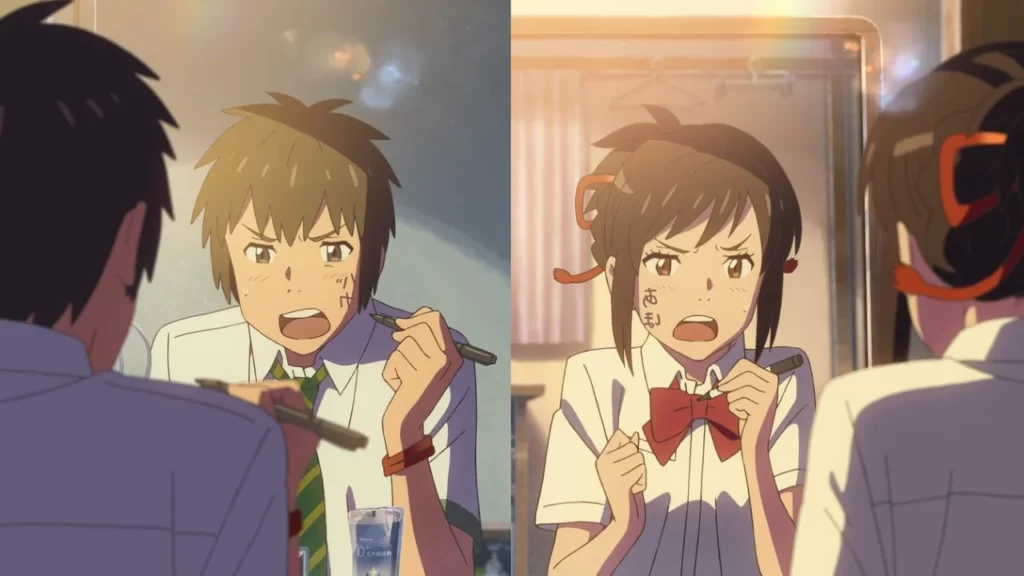
This cinematic gem, Your Name, stands out as one of the most captivating and alluring films in recent memory, deserving of the global acclaim it has garnered. From the outset, the film’s visual splendor and stunning animations capture attention. While the character animations exhibit brilliance, it’s the art style depicting the scenic countryside and Tokyo’s cityscape that mesmerized me. The fictional portrayal presented in Your Name is unparalleled in its marvel and enchantment. While I haven’t experienced Studio Ghibli films, a comparison would be intriguing.
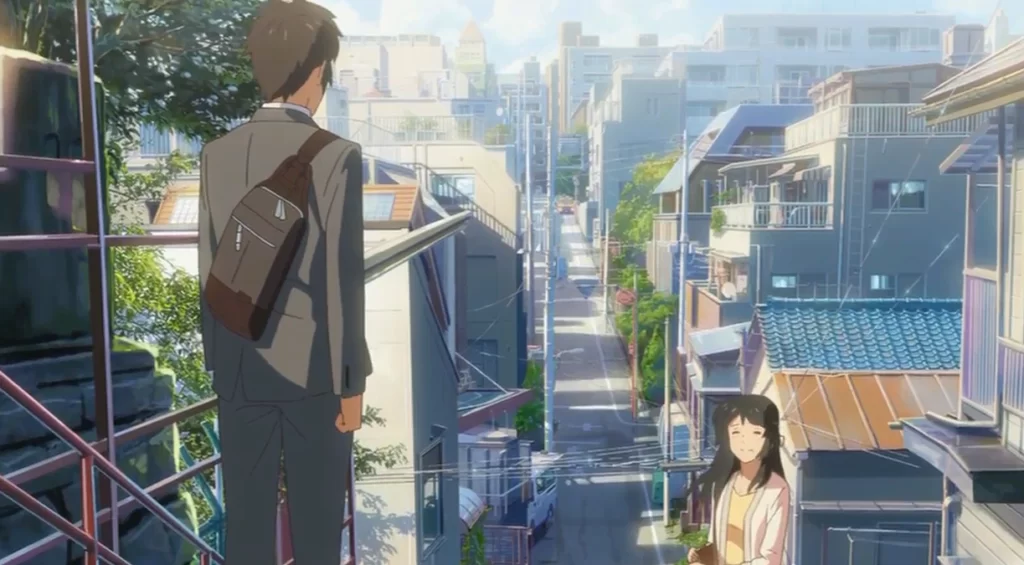
The visual aesthetics of Your Name not only showcase sheer beauty but also deliver an animation quality that mirrors real-life elements. Notably, the meticulous detailing of everyday items like iPhones, replicating the rounded edges and nuanced gloss, lends an uncanny realism to the on-screen visuals. This attention to detail evoked a flood of fond memories from my recent visit to Japan. While Your Name is not the only anime employing real Japanese locations, it exemplifies a trend seen in various anime films and series.
In the realm of anime, the significance of visuals and plot is complemented by another crucial element: the soundtrack. The musical composition and background tunes contribute to the overall allure of a series or film, setting the pace and enhancing the emotional impact of specific scenes. From the very beginning, Your Name immerses viewers in a magnificent opening theme that, for me, establishes the film’s tone from the outset. The magical soundtrack of Your Name breathes life into every facet of the film, enriching the portrayal of characters, scenery, and the film’s climactic moments. Without this evocative soundtrack, Your Name might have lacked the captivating charm it possesses.
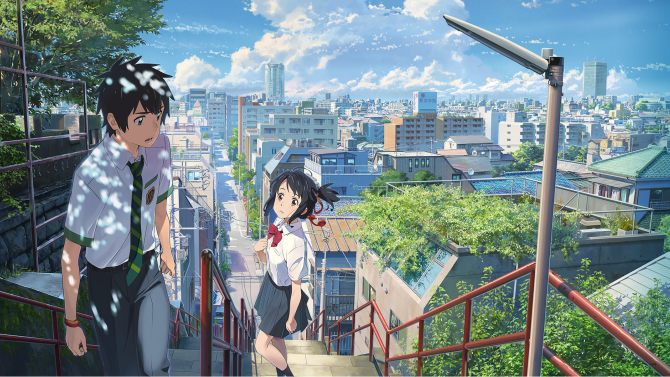
While I thoroughly enjoyed Your Name, it’s worth acknowledging that some viewers may find the cinematic approach and storytelling direction a bit perplexing. The film weaves between different timelines, sometimes starting from the end, delving into the past, and then progressing to the present, incorporating flashbacks of prior events. However, Makoto Shinkai’s exceptional direction ensures that clarity and comprehension are provided by the film’s conclusion, which is commendable. The film techniques and direction of Your Name deserve acclaim, as Shinkai delivers an exhilarating cinematic experience. What particularly resonated with me was the film’s concluding moments, leaving viewers with a satisfying sense of closure while also sparking their imaginations.
Another factor contributing to my enjoyment of the film is the moral lessons embedded in its narrative. Notably, the film underscores the idea that understanding someone else’s experiences requires living their life. Additionally, it emphasizes the importance of listening to children, as there are instances where their wisdom surpasses that of adults.
Makoto Shinkai’s Your Name has received widespread acclaim, numerous awards, and has even surpassed Studio Ghibli’s “Princess Mononoke” to become one of Japan’s highest-grossing films. Having experienced the film firsthand, I can certainly attest to its deserving accolades. With its beautifully crafted narrative, compelling characters, and profound life lessons, Your Name merits every bit of praise. It stands as a film that any enthusiast of Japanese cinema and anime would want to revisit repeatedly.
Also Read: Castlevania Nocturne Anime Review
